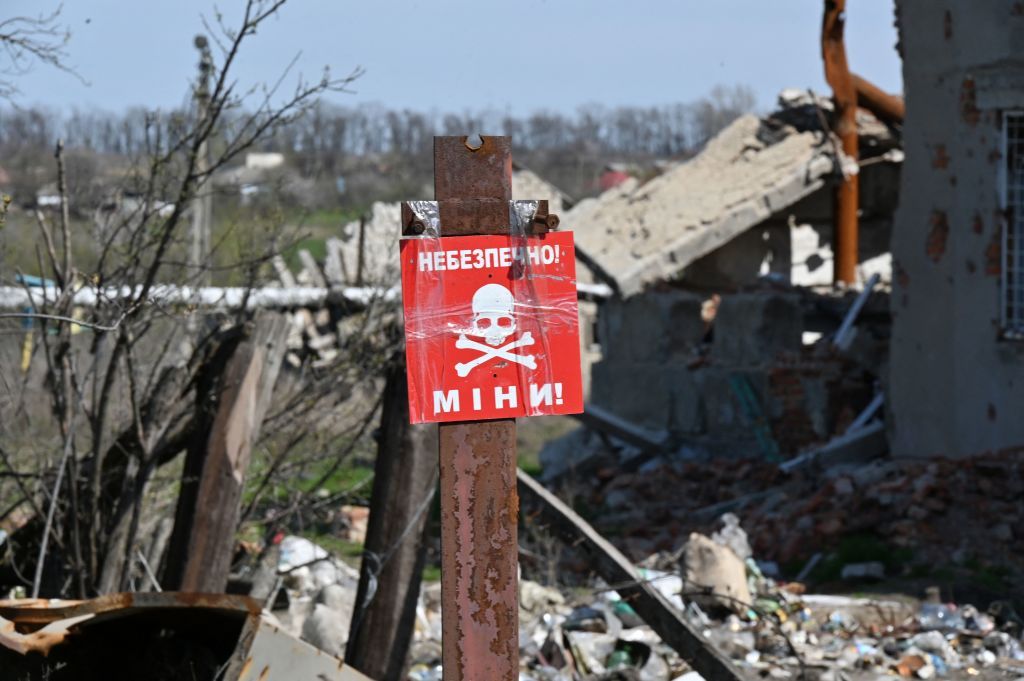During the annual Ukraine Mine Action Conference in Lausanne, Switzerland, Prime Minister Denys Shmyhal emphasized the urgent need for increased international support for demining efforts. With over 50 countries in attendance, the conference aims to secure financial backing for demining projects, which are estimated to cost $34.6 billion according to a World Bank study. Shmyhal stressed the importance of clearing mined areas to restore agricultural production and facilitate the return of displaced Ukrainians. The scale of the challenge is immense, requiring the training of 10,000 deminers and the development of efficient demining technologies, such as AI-powered drones and remote-controlled machines.
Ukraine holds the unfortunate distinction of being the most mined country in the world, with the Defense Ministry specialists having cleared 30,000 square kilometers of mines in the past two years – an area equivalent to the size of Belgium or Moldova. Since Russia’s full-scale invasion, 399 civilians have been killed and 915 injured by mines, as reported by U.N. monitors. Additionally, approximately 174,000 square kilometers of Ukrainian land have been contaminated with explosives since 2022, leaving 144,000 square kilometers still potentially dangerous. The conference is showcasing mock-up scenarios to illustrate the risks posed by mines and display innovative demining technologies to mitigate these dangers.
President Volodymyr Zelensky traveled to Brussels to present his five-point victory plan to the European Council, and to meet with its president, Charles Michel. Zelensky aims to garner support for Ukraine’s post-conflict reconstruction efforts and seek assistance in addressing the challenges posed by demining and landmine clearance. The European Council plays a crucial role in shaping the EU’s response to Ukraine’s recovery and development, as well as in providing resources and assistance to facilitate the country’s transition towards peace and stability. Zelensky’s visit underscores the importance of international cooperation and solidarity in addressing complex post-conflict challenges.
The devastating impact of landmines in Ukraine, stemming from the ongoing conflict with Russia, has resulted in significant casualties among civilians and hindrances to the country’s economic and social development. The clearance of mines is not only crucial for saving lives and preventing injuries, but it is also essential for restoring normalcy in affected areas and enabling the return of displaced populations. The use of advanced demining technologies, such as AI-powered drones and remote-controlled machines, represents a promising approach to accelerating the demining process and minimizing risks to individuals involved in clearance operations. Continued international support and collaboration are vital in addressing the extensive challenges posed by landmines in Ukraine.
The meticulous and tedious process of demining in Ukraine necessitates comprehensive planning, specialized training for deminers, and the deployment of state-of-the-art technologies to ensure effective and efficient clearance of mined areas. The high costs associated with demining underscore the importance of securing adequate financial resources and international assistance to sustain these efforts and achieve tangible progress in reducing the impact of landmines on Ukrainian society. The conference serves as a platform for fostering dialogue, sharing expertise, and mobilizing support from the global community in addressing the complex challenges posed by landmines in Ukraine. Through concerted efforts and collaborative initiatives, the goal of creating a safe and secure environment for all residents of Ukraine can be realized, fostering peace, stability, and prosperity in the region.














